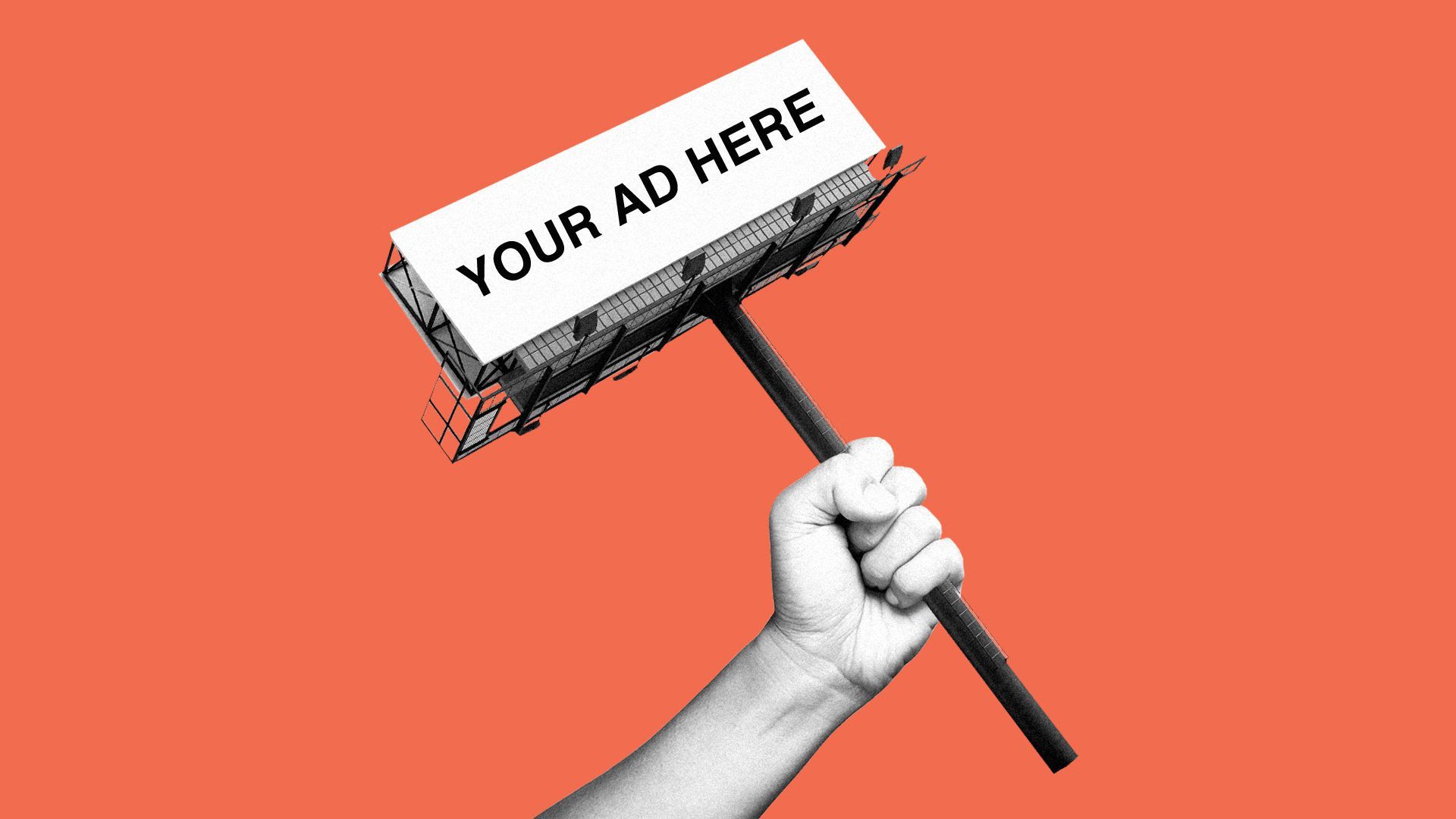The rise of advertising activism in the Trump era
Add Axios as your preferred source to
see more of our stories on Google.

Illustration: Aïda Amer/Axios
An increase in boycotts, threats and blacklists under the Trump administration is putting pressure on corporate America to be more selective with their marketing dollars.
Why it matters: A new era of advertising activism has exploded with Trump, pointing to the increasingly large role that advertising plays in supporting a healthy information ecosystem and democracy.
Driving the news: "At least $235 million in revenue is generated annually from ads running on extremist and disinformation websites," according to a new Global Disinformation Index study reported by CNN that will be released in September.
- The places where these ads end up often go unnoticed by advertisers, which are increasingly buying bulk ads in an automated fashion.
Between the lines: Advertising executives are using more sophisticated "blacklists" to prevent their ads from appearing next to dodgy news, the Wall Street Journal reports.
- While advertisers have used these types of tactics for years to avoid headlines around bombs and shootings, the Journal says that some news companies are beginning to feel the impact of those efforts.
The big picture: Advertising boycotts have become more frequent in the era of Trump, #MeToo and accountability politics.
- There's been a record number of advertising boycotts on major ad platforms like Facebook and YouTube over their failures to police extremist or inappropriate content.
- Fox News, Breitbart and other conservative-leaning outlets have faced numerous ad boycotts in response to advertising pressure from activist groups.
Sleeping Giants, a social media activist organization that encourages companies to pull their ads from platforms or outlets that distribute misinformation, has been ramping up pressure on advertisers to stop marketing on Google- and Facebook-owned properties, as well as TV shows and websites that they claim run misinformation.
- Their boycott efforts have been mimicked by other advocacy groups like the progressive Media Matters and the conservative Media Research Center.
Be smart: As more more fact-based journalism moves behind a paywall to account for advertising slumps, experts worry that a void is being created for those looking to access high-quality news for free. That journalism typically would've been accessible through ad-supported news media.
- "Even when they are relatively successful, nonprofit and subscription funding end up incentivizing creation of content for only a select group of citizens — the highest-income, highest-education demographics," writes Rodney Benson, chair of NYU's Department of Media, Culture, and Communication in a response at a 2019 antitrust and competition conference at the University of Chicago Stigler Center.
Yes, but: Advertising and corporate sponsorship have the ability to sway the independence of news media, an argument being used by the Bernie Sanders campaign to undermine the media during the 2020 campaign.
What's next: There's more pressure on corporations today to stand for issues that their consumers believe in, which has also contributed to rise the advertising activism and accountability. Expect to see more ad boycotts and an increase of pressure on advertisers leading up to the 2020 election.
Go deeper: CEOs are America's new politicians
